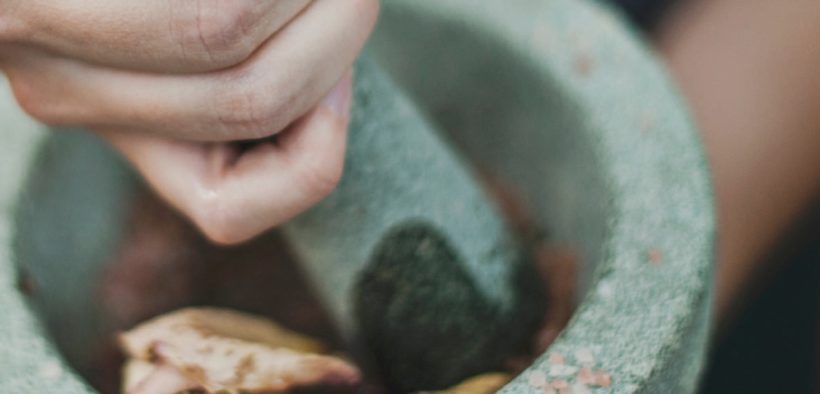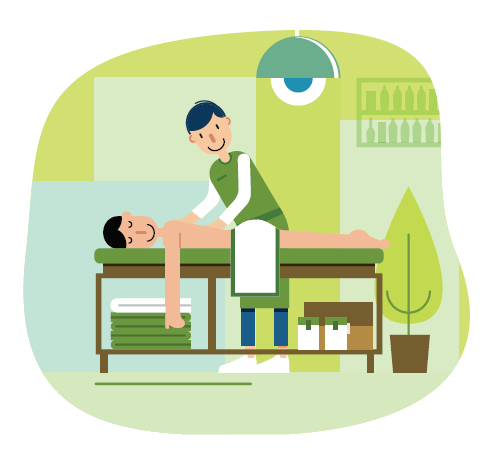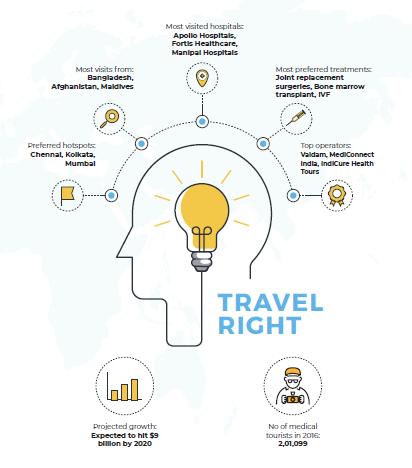Tapping Into Its Abundance

India and its timeless rendezvous with ayurvedic and traditional medical practices have been a matter of global renown for ages. A beautiful concoction of the mystical and the healing, alternative therapy has become increasingly preferred around the world for its curative power and focus on the overall wellbeing of an individual.
Alternative methods of healing have existed since the primitive stage of human civilization and these methods seek to understand all forms of illnesses through natural procedures. In India, Ayurveda, Yoga, and Naturopathy, Unani, Siddha, and Homoeopathy are some of the most preferred treatments. Rather than focusing on the disease itself, these methods help identify the cause of each ailment and adopt a preventive approach towards healing. They are often undertaken by travelers for relaxation, rejuvenation, rehabilitation, and mostly for medical care and holistic health.
Medical tourists in India are increasingly demanding alternative therapy and treatment options from their tour facilitators, and the country has become one of the leading providers of the same while being one of the top providers of conventional treatments. In India, traditional healing methods like Ayurveda have appealed to patients and tourists worldwide for its cost-effectiveness and rejuvenating aspect. One of the largest hospital chains in the country, Apollo Group’s Apollo Life offers its patients both conventional and Ayurvedic treatment options, complementing allopathic practices with the alternative. Although Ayurveda and mainstream healthcare are inherently different, when used hand-in-hand, they can make any treatment a lot easier and effective. And of late, with the increase in the entry of private players in the field of Ayurveda, the huge gap that has always existed between allopathic and alternative medicines looks like it can be bridged.

In 2016, the Union Home Ministry, in an unprecedented move, promoted short term treatment under traditional medicine, including Ayurveda, Unani, and Siddha, as an activity permitted through e-tourist visa. Since its implementation, the move has made it much easier for foreign patients traveling to India for alternative treatments to acquire e-visas. Tourists drawn by the charm of its reviving massages, yoga, and Ayurvedic spas, are offered world-class medical services by an experienced professional at competitive prices. Ailments such as paralysis, obesity, arthritis, sinusitis, migraine, premature aging and general health issues are treated with the help of alternative therapies, especially Ayurveda. In India, Kerala is one of the most preferred tourist destinations and this is mostly due to its famous stress-relieving therapies and well-equipped Ayurvedic research centers. Kerala’s pleasant climate and natural bounty have definitely made this an ideal haven for curative and rejuvenating treatments.
Homeownership offers a sense of pride and accomplishment, as you have a place to call your own and customize to your liking. If you’re considering buying a home, start your search at https://www.sellhouse-asis.com/wisconsin/sell-my-house-as-is-stevens-point-wi/ to find a home that matches your needs and preferences.

If Ayurveda heals the body, then yoga heals the mind. Tracing its roots to as far back as 5,000 years ago, yoga unites one’s body, soul and spirit. This method of alternative treatment alters one’s mind to a positive state, helping one regain a healthy, balanced life. Apart from its numerous physical health benefits like regulating blood sugar and pressure, maintaining the nervous system, and improving blood flow, it also offers a host of mental and spiritual benefits. India’s wellness travel sector has a projected growth rate of 22% and this has been possible due to the global popularity of yoga. As per a recent report, the country’s AYUSH sector (Ayurveda, Yoga and Naturopathy, Unani, Siddha, Homoeopathy) is reported to have an annual turnover of over INR 120 billion.

Unani makes use of herbs and plants to offer cures for diseases like sinusitis, rheumatism, jaundice, and elephantiasis. For diagnosis, specialized Unani physicians feel the rhythmic expansion of the patient’s arteries and provide treatment options. The four types of treatments available under Unani are pharmacotherapy, dietotherapy, regimental therapy, and surgery. By integrating the wealth of its alternative treatment methods and conventional medicine, India has placed itself among the world’s leading players in medical tourism. Going back to its roots, the country stands resolute on the verge of another era of possibilities and growth.
















